#Reduce Calorie Intake
Explore tagged Tumblr posts
Text
Creating a caloric deficit without exercise primarily involves managing your diet and lifestyle choices. A caloric deficit is achieved when you consume fewer calories than your body expends, leading to weight loss over time. Here’s how you can create a caloric deficit without relying on exercise:
1.Calculate your Basal Metabolic Rate (BMR): BMR is the number of calories your body needs to function at rest. There are several online calculators that can help you determine your BMR based on factors like age, gender, weight, and height.
Calculate your BMR using the following formula:
For men: 66.47 + (6.24 × weight in pounds) + (12.7 × height in inches) − (6.75 × age in years).
For women: 65.51 + (4.35 weight in pounds) + (4.7 height in inches) - (4.7 * age in years)
The result is the number of calories you burn every day just by being at rest.
Next, multiply the BMR amount by your level of activity.
Inactive (sedentary) = 1.2
Lightly active = 1.375
Moderately active = 1.55
Very active = 1.725
Finally, 20% of this amount will be your deficit for fat loss
2.Reduce calorie intake: Once you know your BMR, aim to consume fewer calories than your BMR. However, it’s important not to drastically cut calories, as extreme restriction can be harmful to your health. A safe and sustainable rate of weight loss is generally around 0.5 to 2 pounds per week.
1. Cut out sugary drinks like soda and juice (easiest to hit first).
2. Avoid processed foods and snacks (easy to consume lots of calories with nutrient-poor processed food).
3. Eat more fruits and vegetables (this is more difficult).
4. Reduce portion sizes (difficult — as it is a habit change).
5. Make healthier choices when eating out (you need to know what a healthier choice is!).
6. Avoid high-calorie condiments (ranch dressing — steer clear of it).
7. Use smaller plates (tricks your mind into thinking you are eating more).
8. Avoid late-night eating (not best to energize yourself before sleeping).
9. Make sure you’re getting enough protein (protein is good at making you feel full).
3.Monitor portion sizes: Be mindful of portion sizes to avoid overeating. Using smaller plates, bowls, and utensils can help control your portions and prevent overconsumption.
4.Choose nutrient-dense foods: Opt for whole, unprocessed foods that are rich in nutrients and low in empty calories. Vegetables, lean proteins, whole grains, and healthy fats can help you feel full and satisfied while consuming fewer calories.
5.Control your eating environment: Minimize distractions while eating, such as watching TV or using your phone, as these can lead to mindless overeating.
6.Eat slowly: Eating slowly and savoring each bite can help you recognize when you’re full and prevent overeating.
7.Stay hydrated: Drinking water throughout the day can help you manage your hunger and reduce the likelihood of mistaking thirst for hunger.
8.Limit liquid calories: Sugary beverages and high-calorie drinks can contribute to your caloric intake without providing much satiety. Opt for water, herbal tea, or other low-calorie beverages.
9.Plan your meals: Planning your meals and snacks ahead of time can help you make healthier choices and avoid impulsive eating.
10.Avoid emotional eating: Be aware of emotional triggers that may lead to overeating. Finding alternative ways to cope with stress, boredom, or other emotions can help prevent consuming excess calories.
11.Get enough sleep: Poor sleep can disrupt hunger hormones and lead to overeating. Aim for 7–9 hours of quality sleep per night.
12.Manage stress: High stress levels can contribute to overeating. Engage in stress-reduction techniques such as meditation, deep breathing, or engaging in hobbies you enjoy.
Calorie deficit diet plan (free)
This diet plan is based on the following: 41-year-old female, weighing 150 pounds, 5 foot 4 inches tall, moderately active, extra protein, 20% calorie deficit.
It equates to around 1650 calories per day. Here’s an example of one day:
Daily Totals
Calories: 1649
149 g Protein / 46.5 g Fat / 158.5 g Carbohydrate / 37.5 g Fiber
Breakfast
Blueberry Oatmeal
1/4 cup (dry) steel cut oats cooked, 1 cup blueberries, 1/4 cup plain non-fat Greek yogurt.
Snack
12 dry roasted almonds with salt.
Lunch
Tilapia Lettuce Wraps
8 oz. cooked tilapia, sautéed peppers and onion (1 cup each raw) w/ 1/2 teaspoon coconut oil, 3 large leaves of romaine lettuce, Dijon mustard.
Snack
Banana protein smoothie
1 medium frozen banana (3 oz), 1.5 scoops vanilla protein powder, 1–1.5 cups water.
Dinner
Roasted Veggie and Grilled Chicken Salad (see recipe) (2 servings)
1 teaspoon olive oil and 1 tablespoon balsamic vinegar as dressing
1 Skinny Cow ice cream sandwich
Remember, the key to successful and sustainable weight loss is consistency and making gradual changes that you can maintain over the long term. It’s always a good idea to consult with a healthcare professional or registered dietitian before making significant changes to your die
#dieting#weight loss#i wanna be weightless#i wanna lose weight#nutrient dense foods#Reduce calorie intake#BMR#caloric deficit#without exercise#tumblrboys#fototumblr#tumblr#tumblrlife#tumblrphoto#envywear#PleaseForgiveMe#tumblrphotos#tumblrlove#tumblrpic#tumblrpics#tumblrposts#tumblrpost#perfect#tumblrpicture#tumblrpictures#tumblrthings#tumblrstuff#instatumblr#beautiful#love
3 notes
·
View notes
Text
NuviaLab Sugar ControlBlood Sugar

NuviaLab Sugar Control is a unique food supplement that supports the maintenance of normal blood sugar levels. Regular use of the product supports the maintenance of proper macronutrient metabolism in the blood, contributes to the regulation of hormonal activity and the reduction of feelings of fatigue. In addition, NuviaLab Sugar Control helps reduce appetite and calorie intake.
NuviaLab Sugar Control is a combination of 9 ingredients that work together to create an effective supplement to help control blood sugar levels. It includes certified plant extracts, as well as vitamins and minerals.
NuviaLab Sugar Control is an extremely desirable food supplement. Take advantage of this fact!
#Blood Sugar Control#Blood Sugar Supplement#NuviaLab Sugar Control#Sugar Regulation#Blood Glucose Management#Appetite Control#Macronutrient Metabolism#Hormonal Balance#Reduce Fatigue#Certified Plant Extracts#Vitamins and Minerals for Blood Sugar#Sugar Control Support#Reduce Calorie Intake#Sugar Levels Supplement#Glucose Regulation
0 notes
Text
Meows at you
Meows at you
Meows at you
Meows at you
Meows at you
Meows at you
2 notes
·
View notes
Text
I know posts aren’t written with a universal audience in mind and that when people make posts like this they are probably not talking to me but
I HATE posts that are phrased to talk to everyone and say shit like “you NEED to be eating X”
shut up! you do not know a persons needs. just saw one that even went so far as to say they didn’t care if a person has a condition that makes it hard. shut up shut up! things that are healthy for most people are not necessarily good for everyone! like. my body does not tolerate cellulose. it makes me throw up. I can only tolerate vegetables in very specific circumstances, and I’m even then I will, not might, WILL, throw up part of the meal. I also receive premade meals in the mail as a disability accommodation. These meals are inevitably designed to cater to the Healthy Diet For Everyone. and as a result, I can’t eat like half of every single one because it’s steamed vegetables that will make me sick. nothing I can even do about it. it’s not possible to receive medical meals for MY medical needs. not to mention all the other stuff they send me that is prohibited for me (whole grain bread —I’m on a low fiber diet. milk —lactose intolerant. pineapple fruit/juice —allergic. tomatoes…allergic again.)
idk man it is an active problem in my life that everything presumes there is only one way to be healthy. I’m so sick of dealing with it. I DONT want to see it on tumblr too! leave nutrition advice to people’s doctors!!!
#rant#disability#actually disabled#actual diet advice from MY doctors that actually know me:#low fiber (GI specialist) high sodium (cardiologist and geneticist) drink lemonade instead of water (urologist)#reduce vegetable consumption (GI) drink high calorie beverages to supplement calorie intake (GI)#the only ‘normal’ advice was to avoid large amounts of fat#which I do because it makes me as sick as the vegetables#stop presuming you know what’s good for people!#I watch my bf do caretaker training videos to hired to care for me and the nutrition and meal planning section was all the same shit#I cannot express enough that if you try to make me live on high fiber and meals that are half steamed veggies with water to drink and#no salt#I will become malnourished#I will throw up so much that I lose weight and lose cognitive function#I will start collapsing whenever I stand up#and I will become so bloated that I only try to eat once a day#I know this because I’ve been there already due to stupid doctors that tried to shove me into a one size fits all diet#it was the most miserable time of my life#toward the end I was only able to stomach cups of tuna#i developed an aversion to eating in general bc I had linked the act of eating with being sick#I lost like 30 pounds in two months#sorry if I take the subject a little personal
3 notes
·
View notes
Text
.
#Ignore me#It's really fucking hard to keep going#When every part of my life is chanting “GIVE UP GIVE UP GIVE UP GIVE UP”#I just had a real terms pay cut#And like an actual pay cut but only by like 4p#I am not well enough to move jobs#I cannot walk away from the person I love even though they really do seem not to want me#But they know I will not leave#I can't leave them#My family only talks to me when someone dies#My flat is so damp the water is running down the walls#And on top of everything I had an appointment with the most USELESS doctor today#“it seems like your weight loss is in line with reduced calorie intake” okay compared to what tho#Because my previous intake was similar#And I put on a bunch of weight#And I'm telling you I've lost 200g a day for the last three months#So um help maybe
0 notes
Text
#Water and weight loss#Hydration for weight loss#Water metabolism#Appetite control and water#Water intake and calorie burning#Water retention and weight loss#Drinking water benefits for weight loss#Water consumption and fat burning#Water as a natural appetite suppressant#Boosting metabolism with water#Water and fat loss connection#Water for detox and weight management#Hydration and physical performance#Water and digestion in weight loss#Drinking water before meals for weight loss#Role of water in reducing bloating#Water’s effect on metabolism rate#Water consumption and reduced cravings#The impact of water on calorie intake#Healthy habits for weight loss with water#health & fitness
1 note
·
View note
Text
8 Tips for Healthy Eating
8 Essential Diet Tips for Healthy Eating: A Comprehensive Guide Unlocking Wellness: 8 Diet Tips for a Healthier Eating Lifestyle Revamp Your Diet: 8 Tips for Incorporating Healthy Eating Habits Q&A Wholesome consuming is a basic facet of sustaining total wellness and longevity. This introduction will present an summary of eight important ideas for wholesome consuming. The following pointers…
#Balanced Diet#calorie management#cut down on sugar#exercise#food labels#fruit and vegetables#healthy breakfast#healthy choices#healthy eating#Heart Health#high-fiber foods#lower salt intake#oily fish#portion control#protein sources#reduce saturated fat#stay hydrated#Weight Management#Well-being#whole grains
0 notes
Text
Lean Bliss Supplements - Health
Lean Bliss Supplements - A Lifesaver for My Weight Management Journey

For years, I struggled with maintaining a healthy weight. I tried countless fad diets and exercise routines, but nothing seemed to stick. Feeling frustrated and discouraged, I decided to explore the world of natural supplements to see if they could offer any support. That's when I stumbled upon Lean Bliss Supplements - Health.
Improved Energy Levels
Initially, I was a little apprehensive about trying supplements. However, after reading positive reviews and conducting my own research, I decided to give Lean Bliss a go. I started taking the recommended dosage daily, and within a couple of weeks, I noticed a significant improvement in my energy levels. I no longer felt sluggish in the afternoons, and I had the motivation to hit the gym with renewed vigor. This newfound energy made it easier to stick to my workout routine, which played a crucial role in my weight management journey.
Reduced Cravings and Appetitie Control
One of the biggest challenges I faced was controlling my cravings. Unhealthy snacks and sugary drinks were my downfall, and I found it difficult to resist them. Lean Bliss Supplements helped curb these cravings significantly. I felt fuller for longer after meals, and I no longer felt the urge to reach for unhealthy snacks between meals. This appetite control was a game-changer, as it allowed me to make healthier food choices and reduce my overall calorie intake.
Enhanced Digestion and Gut Health
Lean Bliss also had a positive impact on my digestion. I previously suffered from occasional bloating and constipation, which made me feel sluggish and uncomfortable. Since taking the supplements, my digestion has become smoother and more regular. I believe this improvement in gut health is due to the presence of prebiotics and probiotics in the formula, which promote the growth of good bacteria in the gut. This not only improved my digestion but also contributed to a feeling of overall well-being.
Natural and Safe Ingredients
One of the things I appreciate most about Lean Bliss Supplements is their focus on natural ingredients. The formula is free from artificial additives, stimulants, and harsh chemicals, which gave me peace of mind while taking them. It was important to me to find a supplement that wouldn't cause any unwanted side effects, and Lean Bliss delivered on that promise.
Sustainable Weight Management
Lean Bliss Supplements have been a valuable asset in my weight management journey. They provided me with the extra boost I needed to control my cravings, improve my energy levels, and regulate my digestion. While the supplements played a significant role, it's important to remember that they work best when combined with a healthy diet and regular exercise. Lean Bliss helped me create a sustainable weight management routine that I can stick to for the long term.
Overall, I highly recommend Lean Bliss Supplements - Health to anyone looking for a natural and effective way to support their weight management goals. They provided me with the tools I needed to feel more energized, manage my cravings, and improve my overall health.
0 notes
Text
This is my ultimate list of medications wich can help you with loosing weight<3
———————————<3———————————— 1. Stimulants:
Methylphenidate, Adrall, Methamphetamine , Dexamphetamine, Lisdexamphetamine, Dexmethylphenidate: Stimulants prescribed for adhd, leading to an significant decrease of appetite, especially in the first months.
Bupropion: A stimulant prescribed for depression. Same effects as the other stimulants I mentioned at 1.
Modafinil: A stimulant prescribed for narkolepsy. Same effect as the stimulants i mentioned above.
Ephedrine: A stimulant prescribed for narkolepsy and hypotonia. Same effect as the stimulants i mentioned above.
Norephedrine: A stimulant prescribed for hypotonia. Same effect as the stimulants i mentioned above.
Pseudoephedrine: Used for nasal congestion, cold and allergy treatment. You can find it in many over the counter medications :)))
(Misusage of stimulants can lead to addiction)
———————————<3————————————
2. Others:
Atomoxetine: A non stimulant prescribed for adhd. The effect of decreased appetite is often not that strong in comparison to stimulants.
Fluoxetine: Also known as Prozac, is an SSRI- antidepressant. Leads to an decrease of appetite, unfortunately only in the beginning few weeks to months of medication.
L-Thyroxine: Prescribed for hypothyroidism. Leads to an decreased appetite in the first week. (I don’t recommend it, the side effects are not worth it, the effect on your appetite isn’t that big)
Topiramate: Prescribed for epilepsy. Leads to a decrease of appetite. (Just don’t!)
———————————<3———————————— However I actually do not recommend you to use medications to suppress appetite. Misusage of medications can be really harmful and dangerous. If you really want to, please inform yourself about side effects and dosage. I also do not recommend you to use any of these medications long term. Always think about if it is worth it.
————————————<3———————————
3. Laxatives:
Stop trying to reduce your calorie intake with laxatives. It won’t work. Ts can get really damaging for your health and won’t even help you lose weight. Only thing that can work is sodium sulfate with lots of water. All of the other ones will only create an illusion of you losing weight while in reality the only thing you lose is a lot of poop and water. It imbalances your electrolytes which can be really dangerous, especially when you use them regularly.
———————————<3————————————
#anadiet#male ed#maleana#maleed#tw ana bløg#tw ed ana#male thinpo#tw ana rant#ana y mia#light as a feather#ed dieta#ed blogg#ed rant#cute#boy ana#@n@ diet#@na motivation#@n@ tips#@na blog#@n@ buddy#@na rules#tw 3d diet#tw 3d vent#3d not sheeran#3d f4st#3d but not sheeren#3d blog#medication#self medicating
501 notes
·
View notes
Text
Top 10 calorie suppression foods to reduce weight.
Source: www.cosmats.com (Cosmetic store)
Leafy Greens: Leafy greens are low in calories and high in fiber, which can help you feel full and satisfied.
Oatmeal: Oatmeal is high in fiber, which can help you feel full and satisfied. It also has a low glycemic index, which means it can help stabilize blood sugar levels and prevent cravings.
Legumes: Legumes such as beans, lentils, and chickpeas are high in protein and fiber, which can help you feel full and satisfied.
Soup: Eating soup before a meal can help you feel full and satisfied, which can lead to eating less during the meal.
Greek Yogurt: Greek yogurt is high in protein and low in calories, which can help you feel full and satisfied.
Berries: Berries are low in calories and high in fiber, which can help you feel full and satisfied.
Eggs: Eggs are high in protein, which can help you feel full and satisfied. They also have a low glycemic index, which means they can help stabilize blood sugar levels and prevent cravings.
Nuts: Nuts such as almonds, walnuts, and pistachios are high in protein and fiber, which can help you feel full and satisfied.
Avocado: Avocado is high in fiber and healthy fats, which can help you feel full and satisfied.
Salmon: Salmon is high in protein and healthy fats, which can help you feel full and satisfied. It also contains omega-3 fatty acids, which have been linked to reduced inflammation and improved brain function.
#reduce weight#calorie suppress#calorie suppression#cosmats#calorie control food#calorie intake#calorie deficit diet
1 note
·
View note
Text
How can I loose weight?
I got you.
💗weightloss, diets and healthy habits💗
1. healthy habits
before we start, you want longterm process. So form habits. Become disciplined.
No crash-diet means no jojo-effect. No crash-diet means actual progress that doesnt go to waste.


2. diet
No matter how much you move, if your diet is not sitting right, you wont slim down. Over time you have to include healthy and nutritious options into your diet.
~small bowl of veggies, before breakfast
(such as cucumber, bell pepper, carotts, tomatos. That way your bloodsugar levels wont come crushing down midday)
~breakfast should include something that keeps you full. Dont skip it. People who eat breakfast tend to loose more weight and be slimmer.
(Porride, Eggs, Avocado, etc)
I usually include: Oatmeal, Chia sees, Berries and one Banana
~try not to snack, keep going for three meals a day
~eat whole foods, eat clean and make sure to dont neglect your protein-intake
(protein keeps us full and satisfied. Also, you want to loose fat, not muscle)
~cut out sodas and liquid calories!!!
such a waste. go for the light options with 0-2kcal. They taste the same, if not better.
Also, drink enough water.
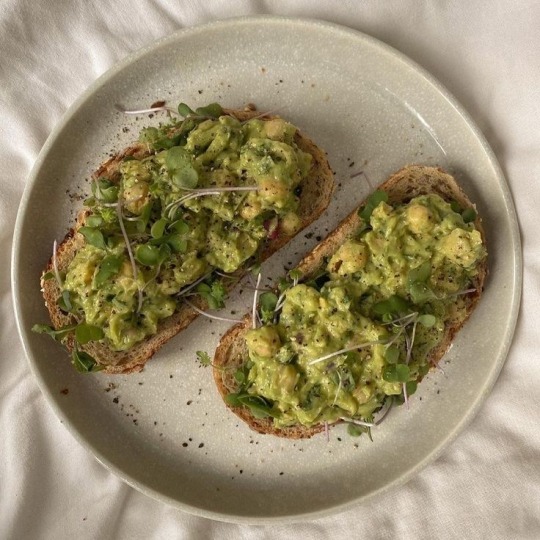


3. workout
Normally, I work out every day in some way.
Cardio, strenght, pilates or just a walk outside.
Moving your body, keeping it toned and flexible, helps your mood, your health and your overall life.
On top, it burns calories.
Build some muscle and loose some fat. Thats how you get your dream body.
Here are my favorite channels, that I workout to daily:
MIZI (cardio mainly, full body workouts and burning calories)
Lidia Mera (pilates full body, toning and strenghtenig, legs, arms, abs)
Shirlyn Kim (specific parts, weightloss, strenghtening/toning,thigh gap)
Yuuka Sagawa (posture, arms and upper body)
Nina Dapper (arms, legs and abs)



4. Beauty Secrets
~ginger/curcuma shots
I tend to have ginger shots to boost my immune system and overall health. They are also very good for your skin and can give you a natural glow.
~probiotics
Your gut health is a game changer. You get less break outs and you can loose weight faster.
You can heal your gut through your diet and order some probiotics.
~castor oil
I live and breath castor oil.
Usually I apply it before bed on my lashes, hair and skin. It helps with hair growth, skin protection and hydration. Its also very good for debloating and detox, if you put it into your belly button.
~green tea
This magic tea can help you loose weigtt, reduce the risk of several diseases, such as diabetes or heart disease,
It reduces anxiety and lowers your cholesterol level.


#clean girl#im a star#wonyoungism#it girl#becoming that girl#that girl#pilates princess#pink pilates princess#pilates aesthetic#aesthtetic#matcha girl#green tea#diet#weight loss#weight goals#weight loss diet#weight management#healthy mindset#healthy habits#improving#best version of yourself#blogging#girlblog#how to be that girl#this is a girlblog#girlhood#wonyoung#healthcare#health & fitness#fitness
370 notes
·
View notes
Text
╰ tips for eating healthy ও

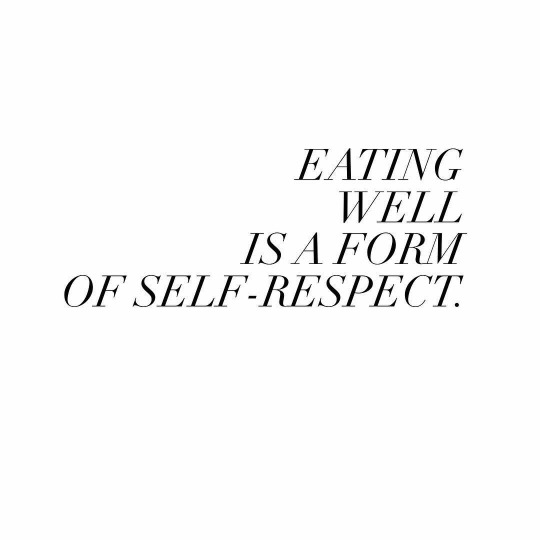
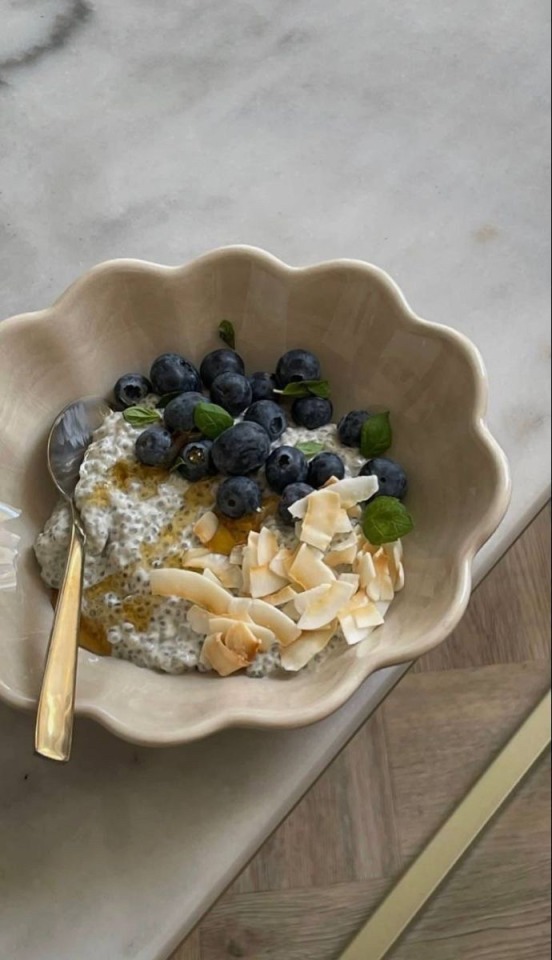
remember that eating healthy is based on long-terms habits, it’s about making balanced choices to nourish ur body in the best possible way
don’t skip breakfast - breakfast gives u energy to start the day and that’s why it’s the most important meal of the day. choose healthy options sush eggs, fruits and yogurt.
includes a variety of foods - be sure to include fruits, vegetables, whole grains, lean proteins and healthy fats in your daily diet. the more variety of foods you consume, the more different nutrients you will get.
control portions - pay attention to the size of the portions to avoid overeating. use smaller plates and serve suitable portions. listen to your body and eat until you feel satisfied, not until you are completely full.
limit the consumption of processed foods - highly processed foods are usually rich in trans fats, sugars and sodium, and lack essential nutrients. try to limit its consumption and opt for fresh and natural food.
drink enough water - water is essential to keep your body hydrated and for the proper functioning of all systems. replaces sugary and carbonated drinks with water to reduce the consumption of empty calories.
cooking at home - preparing your own meals gives you control over the ingredients and the way you cook. avoid eating out frequently, as restaurants usually serve large portions and contain less healthy ingredients.
reduces salt and sugar intake - many processed foods contain excessive amounts of salt and sugar. read food labels and look for healthier options with low salt and sugar content.
plan your meals - organize your meals in advance to avoid resorting to quick and unhealthy options when you are hungry. prepare healthy meals and snacks and have them on hand to avoid falling into unhealthy temptations.
chew slowly and enjoy the food - take your time to eat and chew slowly. this will help you enjoy the food, feel satisfied faster and avoid overeating.
increase the consumption of fruits and vegetables - fruits and vegetables are rich sources of vitamins, minerals and fiber. try to include a portion in each meal and as a snack between meals.
remember there are no tricks for a healthy diet. all you need is desire and will 🫶🏻
@ luvrinne
#wonyongism#divine feminine#creator of my reality#healthy eating#dream life#glow up#it girl#love affirmations#romantizing life#that girl#healthylifestyle#healthy food#self healing#self growth#self confidence#self love#self care#wonyoung
421 notes
·
View notes
Text
How to Naturally Balance Your Hormones
Get enough protein. Proteins provide amino acids that your body cannot make on its own and are needed to produce peptide hormones. These hormones play a crucial role in regulating several physiological processes, including growth, energy metabolism, appetite, stress, and more.
Get enough sleep. Sleep is one of the most important factors in hormonal imbalance. The levels of hormones can rise and fall throughout the day due to the quality of sleep.
Exercise regularly. Getting enough physical activity strongly influences your hormonal health. It enhances hormone receptor sensitivity, helping the delivery of nutrients and hormone signals.
Maintain a moderate weight. Weight gain is directly associated with hormonal imbalances. Obesity relates to a lack of ovulation in women. Eating within your calorie range can help maintain hormonal balance.
Eat plenty of fiber. Fiber plays a role in gut health, helping regulate hormones like insulin.
Watch your gut health. Your gut produces numerous metabolites that can affect hormone health.
Eat healthy fats. Healthy fat intake can work to maintain balanced hormones that are involved with appetite, metabolism, and feeling full.
Lower sugar intake. Minimizing added sugar intake can help balance hormones. Eating added sugar promotes insulin resistance, and fructose intake is linked to disruptions in the gut microbiome, ultimately leading to hormonal imbalances.
Reduce stress. Stress can significantly harm the body’s hormones in many ways. Work to decrease and manage your daily stress.
best resource: logic lol but also Barbara O’Neill 💕
#barbara o'neill#your body your choice#holistichealth#Wild yam extract (topically) and don quai supplements (internally) help too#and vitamin C! and chaste berry (internally)#because imbalanced hormones cause depression#and gender dysphoria#your endocrine system loves you please be nice to it#don’t pay money to big pharma every month to imbalance your hormones on purpose - that’s dumber than smoking cigarettes#and should be equally as illegal for kids
317 notes
·
View notes
Text


how much should you eat? (the science)
understanding how much to eat and what types of foods to include in your diet is crucial for maintaining health and well-being. it’s all about balance, variety, and moderation. here’s a breakdown:
how much you should eat:
the amount of food you need depends on various factors, including age, gender, activity level, and overall health. the general guideline is to follow the daily caloric intake recommendations. on average:
women: approximately 1,800 to 2,400 calories per day.
men: approximately 2,200 to 3,000 calories per day.
these ranges can vary significantly based on individual needs. notice how it says approximately!! it's important to consult with a healthcare provider or a nutritionist for personalized advice, -or do your own (backed) research for your lifestyle, current weight/height and body type.
types of foods:
fruits and vegetables:
recommendation: aim for at least 5 servings per day.
why: they are rich in vitamins, minerals, and fiber, which are essential for overall health. fiber aids digestion and helps prevent constipation. antioxidants in fruits and vegetables can reduce the risk of chronic diseases.
whole grains:
recommendation: make at least half your grain intake whole grains.
why: whole grains like brown rice, oats, and whole wheat provide more nutrients than refined grains. they contain fiber, which helps regulate blood sugar levels and promotes digestive health. they also provide essential nutrients like b vitamins, iron, and magnesium.
protein:
recommendation: include lean protein in every meal.
why: protein is vital for building and repairing tissues, producing enzymes and hormones, and supporting immune function. sources include lean meats, poultry, fish, beans, lentils, tofu, nuts, and seeds.
dairy or dairy alternatives:
recommendation: aim for 3 servings per day.
why: dairy products and fortified alternatives provide calcium, vitamin d, and protein, essential for bone health. choose low-fat or fat-free options to reduce saturated fat intake.
fats:
recommendation: consume healthy fats in moderation.
why: healthy fats, such as those found in avocados, nuts, seeds, and olive oil, are important for brain health, hormone production, and absorption of fat-soluble vitamins. avoid trans fats and limit saturated fats.
the science behind it:
energy balance: the concept of energy balance is central to weight management. if you consume more calories than you burn, your body stores the excess energy as fat. if you consume fewer calories than you burn, you lose weight.
macronutrients: carbohydrates, proteins, and fats are the three macronutrients that provide energy (calories). each plays a different role in the body:
carbohydrates are the body’s primary source of energy. they should make up 45-65% of your daily calorie intake.
proteins are crucial for tissue repair and immune function. they should constitute 10-35% of your daily calories.
fats are essential for brain health and energy storage. they should account for 20-35% of your daily calories.
micronutrients: vitamins and minerals are micronutrients needed in smaller amounts but are vital for numerous bodily functions, including energy production, immune function, and bone health.
personalized approach:
everyone’s nutritional needs are different, and what works for one person might not work for another. it’s essential to consider your lifestyle, health conditions, culture, and personal preferences when planning your diet. consulting a healthcare provider or a registered dietitian can provide personalized guidance tailored to your specific needs.
remember, a balanced diet not only supports physical health but also enhances mental well-being, energy levels, and overall quality of life. happy eating!
❤️nene
instagram | pinterest | blog site
#that girl#study blog#chaotic academia#student life#it girl#productivity#it girl aesthetic#academia#becoming that girl#student#eating#food#science#stem#stem academia#stem student#stemblr#women in stem#nenelonomh#study hard#100 days of studying#study#study aesthetic#study inspo#study motivation#study notes#it girl mentality#it girl mindset#it girl energy#it girl journey
126 notes
·
View notes
Text
40 sentences that will teach you more about nutrition than a $400,000 medical degree
From Brett Boettcher @brettboettcher1
40 sentences that will teach you more about nutrition than a $400,000 medical degree.
1) Meat, eggs and animal organs are the most nutrient dense foods on the planet.
2) Bone broth is loaded in collagen and helps repair the gut so you can heal from the inside out.
3) Saturated fat doesn’t cause heart disease, insulin resistance does.
4) Your ratio of triglycerides to HDL is a great indicator of mortality risk; the lower the better. ·
5) Protein is the most metabolically active macronutrient and it isn’t bad for your kidneys.
6) There isn’t quality evidence to show that dietary cholesterol impacts the cholesterol in your blood. ·
7) There is even less evidence to support that total cholesterol is bad for your health since it is inversely correlated to mortality risk. · 4h 8) Walking before and after meals is a great way to improve digestion and reduce blood sugar spikes.
9) Fiber is the last thing you need if you have IBS or diverticulitis.
10) Dairy is great for your health and its saturated fat intake is inversely correlated to heart disease.
11) Most nutritional recommendations were introduced based on profit margins, not health outcomes.
12) Calories in and calories out is all that matter, but some calories make you hungrier (sugar/grains). Other calories (protein) help you burn more calories.
13) Multi grain just means they took 2+ different terrible sources of grain and put them together into one product.
14) Cereal and bread for breakfast will spike your blood sugar and have you starving before lunch. Try Greek yogurt or eggs instead. ·
15) “Intuitive eating” and “listen to your body” makes no sense considering 88% of people are metabolically unhealthy and addicted to food. No one would say “intuitive crack use.”
16) Eating is a stress on your body; The less often you can eat, the healthier you’ll be.
17) Plan your meals around the protein source (with its natural fat) and add a small side of carbs if needed.
18) Eating for satiety is more important than relying constantly on willpower. Find filling foods and avoid foods with addictive properties (ultra-processed).
19) You don’t have to know how to cook. Grill a meat, sauté a green vegetable, bake a potato. Mix and match a million ways.
20) Eating many of the same foods every week isn’t perfectly optimal but it’s likely your best path to consistency and therefore success. ·
21) Becoming more insulin sensitive should be the focus of any health-related nutrition plan.
22) Salad dressings are one of the worst things you can eat for your health. High in calories and inflammatory industrial oils.
23) Eating 5x per day won’t boost your metabolism. If you are trying to gain weight, it’s an excellent strategy.
24) Bacon can be healthy, just avoid the processing with nitrates.
25) Cottage cheese and Greek yogurt are two of the best sources of protein per calorie.
26) Carbs are beneficial around a workout. But many sources of carbs are processed and easily overeaten. Focus on single ingredient foods.
27) You can’t be healthy at any size no matter what your mother or liberal arts professor said.
28) Eat a high protein meal before attending social events that are filled with junk food.
29) If eating out, order the food with the highest protein content.
30) The #1 reason people fail is that they don’t prepare. Meal prep, meal plan, have ready to eat protein sources. · 31) The food you eat directly impacts your mental health and processed foods are correlated with depression and mental illness.
32) Processed foods have been engineered to be as addicting as possible. Your taste buds can be retrained with natural sources.
33) “Plant-based” foods are made in laboratories and are an easy way to sell overpriced junk to consumers at high margin.
34) Eating 1 gram of protein per lb of ideal body weight daily will do more for your body composition than spending 30 minutes on the treadmill.
35) When in doubt, if it comes from the center aisles of the grocery store or has more than 3 ingredients, it’s not good for you.
36) Many foods labeled as “keto” “paleo” or “high protein” are far from meeting the intended definition.
37) Your gut is responsible for 70% of your immune system; feeding it sugar and other inflammatory foods is making you sick now and later.
38) Genetics play a role but over 90% of the country has a resting metabolism within 500 calories daily. Being fit is possible for everyone.
39) Flipping the food pyramid upside down is closer to healthy eating than the traditional suggestions.
40) Eliminating drinking your calories is the first change to make when trying to improve your health.
210 notes
·
View notes
Text


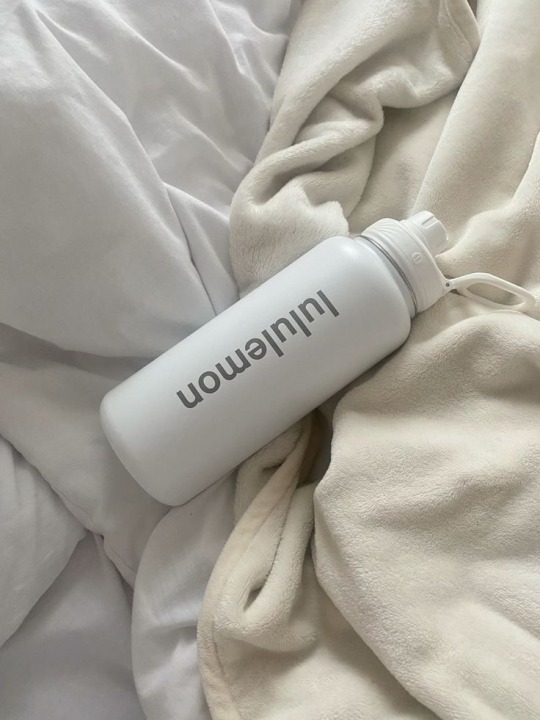
Mindset shift #2: Plateaus are part of the process and key to the success of longterm weight loss.


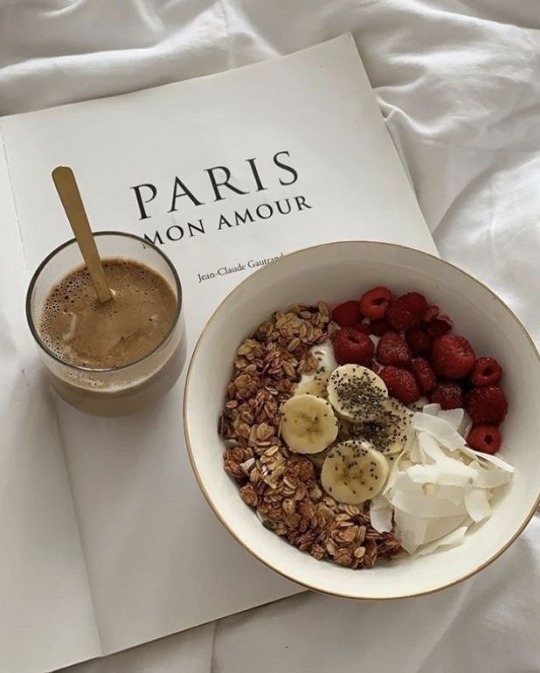
Plateaus are not roadblocks—they’re milestones. They show that your body is adjusting to the progress you’ve made so far. Instead of seeing them as failures, view it as a reward for your hard work. As your body giving you a break so you can recharge and reevaluate.
Why Are Plateaus Important to Your Weight Loss Journey?
When you lose weight, your body needs time to recalibrate:
• Metabolism: Plateaus prevent metabolic adaptation, where your body slows down calorie-burning to preserve energy.
• Hormonal Balance: Hormones like leptin (which regulates hunger) and cortisol (stress hormone) stabilize during plateaus, reducing stress on your body.
• Muscle Preservation: Slower weight loss during plateaus gives your body a chance to retain muscle mass.
What to Do During a Plateau:
1) Don’t Rush to Make Changes: Give your body time to adjust to recent weight loss before altering your diet or exercise routine. Sometimes, patience is the key to moving forward.
2) Focus on Restorative Acts: Prioritize sleep management and stress management, as both play a critical role in weight loss. Poor sleep and chronic stress can disrupt hormones like cortisol, which can hinder progress.
3) Celebrate Non-Scale Victories: Progress isn’t just about the number on the scale. Look for improvements in strength, stamina, mood, energy levels, or how your clothes fit.
4) Reflect and Reassess:
Use this time to observe your journey without judgment. Ask yourself:
• What has been working so far?
• What feels difficult, and how can I make it easier or more sustainable?
• Have I become too restrictive or too lenient?
• Are my diet and exercise routines still aligned with my goals and needs?
Plateaus are a chance to adjust and refine your habits to better suit your lifestyle.
5) Consider Upcycling Calories:
Upcycling calories involves alternating higher and lower calorie days to prevent your metabolism from adapting too much. For instance:
• Increase your calorie intake slightly on one day with nutrient-dense foods like healthy fats or complex carbs.
• Return to your usual calorie range on the following days.
This strategy can help reset your metabolism and push past a plateau.
6) Reassess Your Workouts:
Once you feel ready to adjust, start by varying your exercise routine:
• Incorporate new movements or activities to challenge different muscle groups.
• Ensure your workouts include strength training, which boosts metabolism.
• Avoid overtraining—intense workouts with insufficient recovery can increase cortisol, working against your weight loss goals.
7) Review Your Diet: Plateaus are a good time to take a closer look at your eating habits with curiosity and without judgment. Ask yourself:
• Are you eating enough proteins and fibres to help you feel full and well nourished? Did you eat enough healthy fats to ensure proper satiety?
• Are you eating more calorie-dense foods than you realize, such as cooking oils, granola, nuts, nut butters, cheese, or avocado?
• Be careful of low calorie foods. These items are often ultra-processed with artificial sweeteners. Sugar substitute can negatively impact your gut microbiome and insuline response—paradoxically causing you to gain weight. Focus on fresh whole foods and bake your own little treats, even of they are higher in calories they will be more satisfying.
• Have recent stressors, celebrations, holidays, or vacations led to more indulgences than usual?
• Are you underestimating portion sizes or the amount of food you’re eating?
If you feel comfortable and it won’t negatively impact your mental health, consider tracking your food intake for a couple of weeks. Focus on accuracy by weighing your food rather than using cups or spoons, especially for non-liquid items. Be gentle and non-judgemental. The goal is to understand not punish.
If tracking feels too overwhelming, focus instead on visual portion control (e.g., smaller plates, filling half your plate with veggies, or limiting high-calorie extras like dressings).
#fitness#2025#health and wellness#weight loss#wellbeing#fitblr#wellnessjourney#losing weight#glow up#health & fitness#motivation#self care#eating healthy#healthylifestyle#becoming that woman#becoming that girl#that girl#becoming the best version of yourself#becoming her#it girl#glow up 2025#weightloss
90 notes
·
View notes